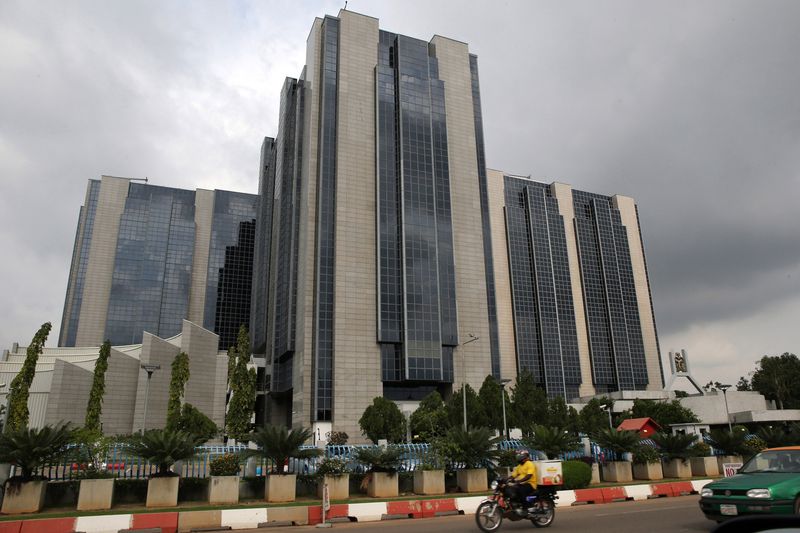The Central Bank of Nigeria (CBN) has been advised by the Monetary Policy Committee (MPC) to begin timely and orderly withdrawal of forbearance on loan restructuring granted to the banking sector.
Seventeen banks had submitted requests to the CBN to allow them restructure 32,000 loans they granted to to individuals and businesses impacted by Coronavirus pandemic.
The move to withdrawal the forbearance to the banking sector on loan restructuring would stop the lenders from carrying out the exercise for the businesses affected by the pandemic.
In his personal notes contained in the communique of the last MPC meeting released by the CBN at the weekend, an MPC member, Prof. Adenikinju Adeola Festus, called for ‘timely and orderly withdrawal of forbearance on loan restructuring granted to the banking sector.’
The CBN Deputy Governor, Mrs. Aisha Ahmad, had in June 2020, announced that 17 banks submitted requests to restructure over 32,000 loans for individuals and businesses impacted by Coronavirus pandemic.
According to her, the figure represents 32.94 per cent of the total industry loan portfolio with the manufacturing and general commerce sectors constituting the bulk of the restructured facilities.
Continuing, Adenikinju said the growth in aggregate credit indicates that the CBN policy on Loan-to-Deposit Ratio (LDR) is working, and defaulting banks should be encouraged to keep to the LDR.
However, he said there are many headwinds assailing the domestic economy.
“Domestic inflation is still unacceptably high and is putting pressures on domestic interest rates. It is also affecting standard of living of Nigerians. The CBN should continue to use the various administrative tools at its disposal to control excess liquidity in the system,” he said.
Festus, who is also Research Professor at the Centre for Econometrics and Allied Research, University of Ibadan, said exchange rate speculations are fueling depreciation of the naira in all the exchange rate windows while the external reserves declined from $34.29 billion.
“In the report on Banking System Stability Review prepared by Bank Staff, the financial soundness indicators show that the financial sector remains strong, sound, and resilient. The Capital Adequacy Ratio, the non- Performing Loan ratios and Liquidity ratios were close to the values in March and hover around the prudential requirements,” he said.
Continuing, he said, Return on Equity and Return on Assets at 19.0 per cent and 1.6 per cent as at April 2021, were generally higher than those of comparator countries.
He said the good thing was that aggregate credit to the economy both from the deposit money banks and the other financial institutions maintain its upward trend. “The number of Nigerians having access to new credits also increased Month-on- Month,” he said.
He however, expressed concerns that the economic recovery rate was still very weak and fragile. “Poverty and unemployment rates are still quite high. The security situation in the country is hurting economic recovery, while at the same time, poverty and unemployment also contributes to the worsening security challenge we have. As we enter another planting season, the effect of climate change may have negative impacts on food prices in later part of the year. The current efforts of the CBN to promote dry season agriculture would be quite helpful,” he said.
In his own notes, CBN Deputy Governor, Edward Lamtek, said that to strengthen the domestic growth outlook, the apex bank must ensure, among others, sustained flow of credit to the real sector of the economy.
“The opportunity to do so exist with extant policies like the minimum LDR, development finance interventions and the innovations around the implementation of the cash reserves requirement (CRR),” he said.
Lamtek expressed confidence that the recovery in real output since fourth quarter of 2020 has been underpinned by a robust banking system credit to the real sector of the economy.
“I believe we have not reached the limits of the impact of these policies. The banking industry remains resilient with relatively good fundamentals. In April 2021, industry non-performing loans (NPLs) ratio moderated to 5.9 per cent and capital adequacy ratio (CAR) rose to 15.8 per cent. Likewise, industry earnings have remained strong despite the macroeconomic shock arising from COVID-19,” he said.
Lamtek said that in effect, the capacity of the banking system to create credit is high.
“From a regulatory angle, what is needed is a mechanism that ensures that growth/employment-elastic activities receive adequate funding from the banking system. This is essentially what most of the extant policies including the global standing instruction (GSI) are designed to achieve,” he added.



